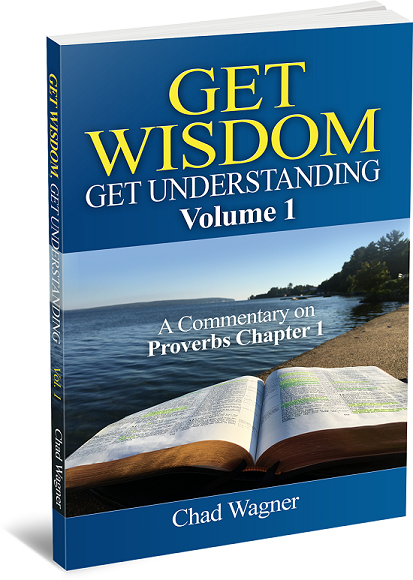Subscribe to Pastor Wagner's Blog
Blog - Proverbs 1:2

In verses 2-4, Solomon gives his purpose for writing the book of Proverbs. "To know wisdom and . . . understanding" is first on the list. This phrase encompasses the three main virtues which he will expound upon in great detail in the rest of the book: knowledge, wisdom, and understanding. Thus, the Proverbs were written that the reader may know things. This simple fact presupposes that the mind is capable of knowing. At first glance it may seem superfluous to state such an obvious observation, but this simple fact has escaped many so-called great minds, both of the ancient Sophists of Socrates' day, and their philosophical grandchildren of the enlightenment, who "professing themselves to be wise, they became fools" (Rom 1:22) and declared that man cannot know anything for certain. This, of course, is self-refuting nonsense; for if it is certain that a man cannot know anything for certain, then he knows something for certain; and if it is not certain that a man cannot know anything for certain, then he cannot with certainty state that he cannot know anything for certain. Solomon needed not prove that the human mind is capable of knowing, for it is a self-evident truth which must be affirmed to be denied. Not only can the mind know facts, God created man's mind to be able to know wisdom. Wisdom is "capacity of judging rightly in matters relating to life and conduct; soundness of judgement in the choice of means and ends; sometimes, less strictly, sound sense" (OED). Therefore, man is capable of knowing how to judge rightly in matters relating to life and conduct, but he isn't born with this knowledge innately, for he is commanded to "get wisdom" (Pro 4:5), which demands that he doesn't have it naturally. Man therefore has to learn wisdom in order to know it. The next purpose for the book of Proverbs is "to know instruction." Instruction is "the action of instructing or teaching; the imparting of knowledge or skill; education; information" (OED). In order to learn wisdom, a man must first know that he needs to be taught, which implies that he must first recognize his ignorance. The man that doesn't think he needs instruction, needs instruction, for "if any man think that he knoweth any thing, he knoweth nothing yet as he ought to know" (1Co 8:2). Contrarily, the man, who when asked, "understandest thou what thou readest?" answers "how can I, except some man should guide me?" is ready to learn wisdom (Act 8:30-39). The wise man recognizes that he needs instruction and receives it gladly, but the fool thinks he need not be taught by any. "Give instruction to a wise man, and he will be yet wiser" (Pro 9:9), "but fools despise wisdom and instruction" (Pro 1:7). The man who will know wisdom and instruction must first "perceive the words of understanding." To perceive is "to apprehend with the mind; to become aware or conscious of; to observe, understand" (OED). Understanding is "power or ability to understand; intellect, intelligence; intelligent, capable of judging with knowledge; the faculty of comprehending and reasoning; the intellect; of persons: possessed of understanding; having knowledge and judgement; intelligent" (OED). Thus, Solomon wrote the book of Proverbs to teach a child of God to become aware and conscious of the words of intelligence and knowledge coming from someone with the faculty of reasoning and judgment, and to apprehend those words when he hears them which will enable him to ultimately know wisdom.
